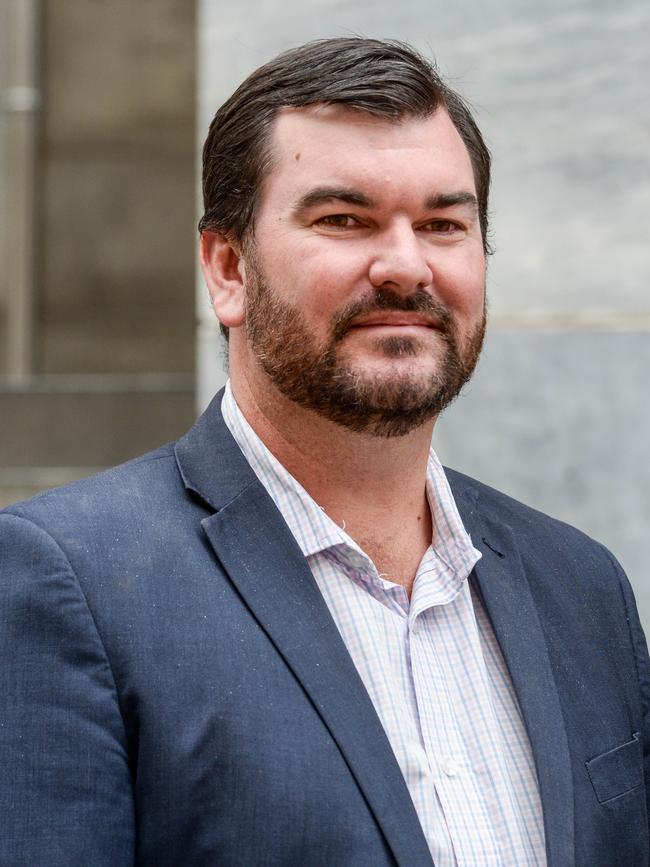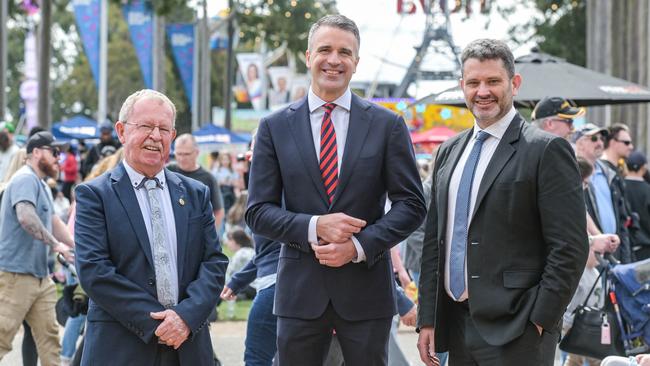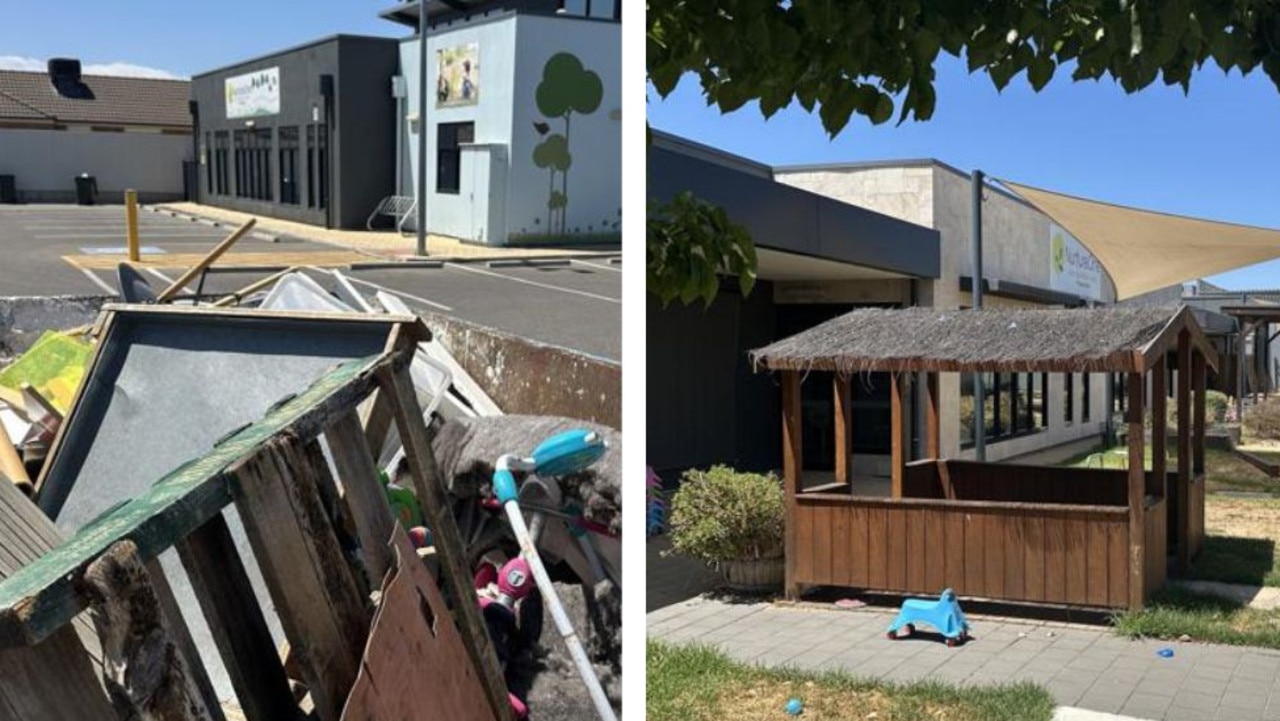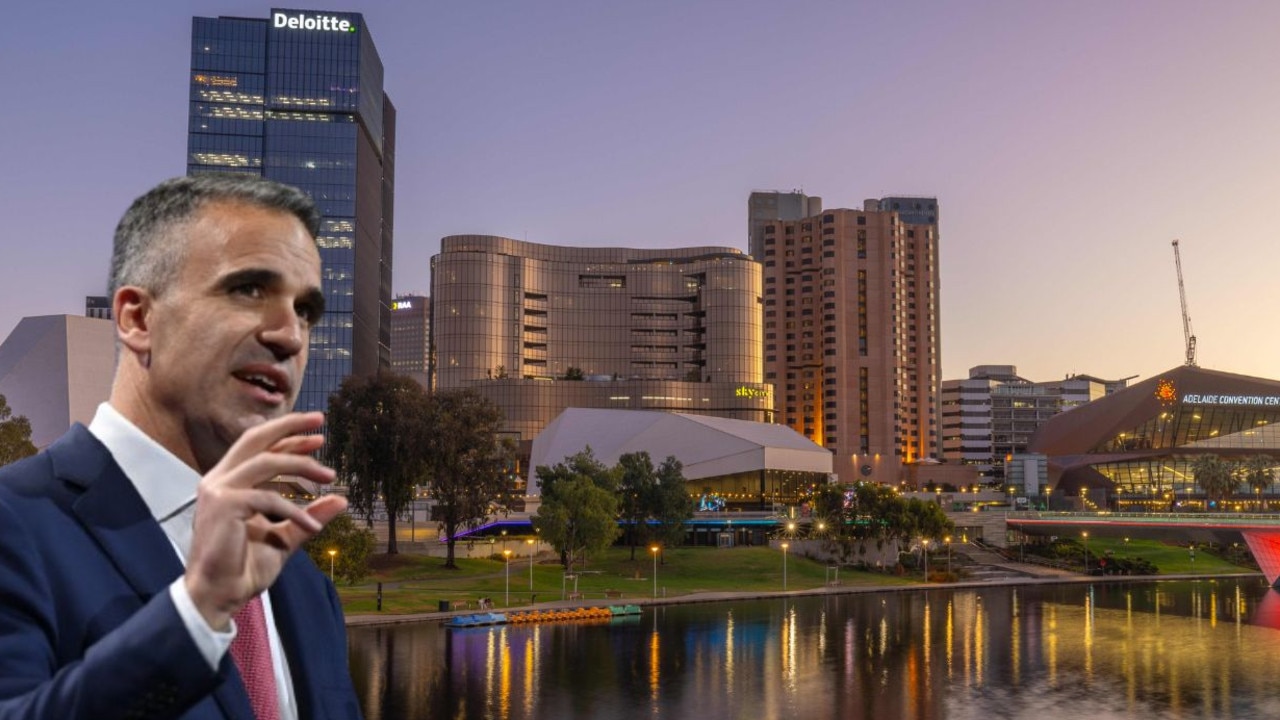Telfer slams Malinauskas council merger blueprint
The opposition has slammed the Premier’s super-council blueprint, saying he unveiled the plan after visiting a region “a couple of times”.

SA News
Don't miss out on the headlines from SA News. Followed categories will be added to My News.
Premier Peter Malinauskas has been accused of floating a “thought bubble” on council mergers after unveiling a preferred amalgamation model as an “opportunity to deliver a better outcome for ratepayers”.
Responding to The Advertiser’s exclusive report that Mr Malinauskas had put kickstarting mergers of South Australia’s 68 local councils on the table, Liberal local government spokesman Sam Telfer said Labor had done nothing to push council reform in the past 20 years of government and opposition.

Mr Telfer accused the Premier of producing a South East council merger plan after visiting the region “a couple of times” and questioned whether he had “put the cart before the horse” with local government elections starting in October.
“He’s saying we’ll include something in that (ballot). The councils down there haven’t had any involvement. The community hasn’t had an involvement at this point. Where’s the end game for this?” Mr Telfer told ABC Radio.
The Advertiser revealed Mr Malinauskas would spearhead the South East council merger ballot as a test case and acknowledged amalgamations were always controversial but insisted he would “have the courage to ask the question”.
Asked his view on the number of councils, Mr Malinauskas said SA had some of the smallest constituencies in the country based on population, particularly in some regional communities.
In an exclusive interview with The Advertiser, Mr Malinauskas revealed South East voters at next month’s local government elections would implement his preferred model, by deciding whether to investigate the merger of Mount Gambier Council with the surrounding Grant District Council.
If electors of the two councils voted in favour, the Local Government Boundaries Commission would start community consultation, while the SA Productivity Commission would assess economic benefits of the merged council.
“If this model were to result successfully in a council amalgamation voted for (by) a community and its people, then we would see it as potentially being a model for utilisation elsewhere. Where there is genuine community support and an evidence-based argument in favour of amalgamation, then, I think government should be open-minded to it,” he said.
“I don’t think it should be done belligerently. I don’t think it should be done without a sound evidence base. But I think the pursuit of the evidence base needs to be done with community support. And that’s why we’re putting this model out there.
“ … Of course, more broadly than that, if this were to play out, then maybe it’s a model that can be replicated more broadly, if there’s community support for it.”
Mr Malinauskas said the ballot followed community and business demands, including at a June Country Cabinet meeting in Mount Gambier.

The model was approved at a cabinet meeting on Monday at the Adelaide Showground, following a submission co-authored by Attorney-General Kyam Maher and Local Government Minister Geoff Brock.
Greens state co-leader Robert Simms, among those reacting on ABC Radio, said evidence from other jurisdictions showed forced mergers had resulted in increased rates and CEO salaries, along with service and staff cuts.
“All those things are really concerning for us and I think need to be carefully considered by local communities and by the parliament before we go down any merger path,” he said.
Independent Mount Gambier MP Troy Bell said a merger of Mount Gambier and Grant councils had been a discussion topic among business and community leaders for more than a decade.
“So what the Premier is aiming to do is really give the power to the people and say: ‘If you want government to explore this, you will have your say and that say will be at the upcoming council elections’,” Mr Bell said.
Local Government Association chief executive officer Clinton Jury said councils were the only sector in which residents were given a genuine say about budgets every year.
“We certainly don’t support forced amalgamations because there is a lot of history which tends to show that they aren’t always successful and they don’t always get the efficiencies that people think they might,” he said.
“But what we would prefer to see, in a way what’s happening with what the Premier has proposed, is that these things should be community-led, and the community should actually have a big say because ultimately it’s going to affect them.”
Asked by The Advertiser whether SA had too many, too few or about the right number of councils, Mr Malinauskas said: “Here’s what we definitively know – that on the basis of population, we have some of the smallest councils in the country, particularly in some regional communities.
“Lots of the boundaries are there for reasons that are largely historic, and that’s where, I guess, there’s potentially an opportunity to deliver a better outcome for ratepayers.
“But council amalgamations rarely work or stand the test of time where they’re done belligerently and without community consent, and that’s why we’re putting forward this model.”
Then asked his view about the number of Adelaide councils – there are 19 in the greater metropolitan area – Mr Malinauskas said: “I think we should be open-minded that there’s always room for improvement but I don’t arrive at it with a preordained position about too many councils in metropolitan Adelaide.”
Mr Malinauskas insisted he would await the South East ballot’s verdict before nominating a time frame for delivering a merger and how the model might be applied elsewhere.
SA councils have resisted mergers, with the most recent major changes in 1997. These included Hindmarsh Woodville and Henley and Grange councils combining to form Charles Sturt, along with Norwood, Payneham and St Peters councils merging. In the South East, Wattle Range Council was formed from the merger of Beachport, Millicent and Penola.
In an Advertiser opinion piece published in February last year, Local Government Association (LGA) president and Charles Sturt mayor Angela Evans argued council mergers were “very expensive and don’t always deliver efficiencies and savings”.
She cited a 2019 Productivity Commission inquiry, which found that most councils achieved “high levels of relative efficiency”, when compared with each other, and “further significant improvements were possible”.
But the 1995 blueprint that kickstarted the 1997 SA mergers forecast up to $150m in savings for ratepayers, or a $100 annual cost reduction per household. That blueprint, commissioned by the-then Liberal government, recommended slashing the number of councils from 118 to 34 by mid-1997, creating 11 metropolitan councils and 23 in the country.
Among the 1995 report’s recommendations for metropolitan mergers was an eastern suburbs super-council area, combining the-then councils of Burnside, Kensington and Norwood, Payneham, Campbelltown, St Peters, Prospect and Walkerville, along with parts of East Torrens and Enfield.
The Marshall Liberal government, ousted by Malinauskas-led Labor in March, failed to implement a 2018 election policy to cap council rates that was opposed by the LGA.
The Liberals also did not win backing for reforms that included capping council chief executive salaries and limiting local government to 12 elected members.
More Coverage
Originally published as Telfer slams Malinauskas council merger blueprint




